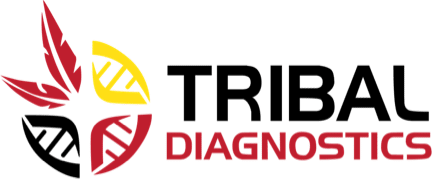Tribal Diagnostics is set to begin accepting Coronavirus (COVID-19) samples from healthcare providers, including Indian Health Service, Tribal and urban Indian (I/T/U) facilities on April 22, 2020. Testing is affordable and will occur in two phases.
“Tribal Diagnostics is proud to use our experience during these challenging and unprecedented times. We have now conducted over 1 million laboratory tests and feel uniquely positioned to join the fight to control the COVID-19 outbreak across the country and especially within our Tribal communities by doing what we do best – providing comprehensive lab analysis as quickly as possible,” said CEO Cory Littlepage, who is a citizen of the Chickasaw Nation of Oklahoma.
Tribal Diagnostics will start the first phase of Coronavirus testing the week of April 20 by analyzing serology blood antibody tests, which identifies if a person has had COVID-19. The antibody test will run on an Abbott ARCHITECT instrument which can test 100 patient specimens per hour. The second phase, which is set to start in early May, includes a nasal swab molecular polymerase chain reaction (PCR) test that detects the presence of the virus and identifies if a person currently has COVID-19. The PRC test is currently in development but will run on its ThermoFisher QuantStudio instrument which can test 200 patient specimens per day.
“For antibody tests, knowing if a person was previously infected helps provide context on who is developing immunity or protection against COVID-19. Knowing who has some level of immunity is an important factor in deciding when a person can safely return to work or restart life,” Littlepage said. “Antibodies take time to develop, so understanding the early detection of COVID-19 through a PCR molecular test is critical for providers, and Tribes, in controlling the virus and determining treatment options.”
Littlepage added that finances should not prevent someone from being able to have access to Coronavirus testing, so the Oklahoma based lab will only charge the Medicare rate for COVID-19 tests. Tribal Diagnostics also has national agreements with UnitedHealthcare, Cigna, Aetna, 19 Blue Cross Blue Shield plans, several regional insurance carriers, Medicare, state Medicaid programs and Tribal health systems which will help cover the cost of medically necessary tests. An agreement with Humana will begin on June 1, 2020.
While Tribal Diagnostics is available to serve all healthcare providers, they are working hard to ensure Tribally-operated hospitals and clinics are receiving focused care and analysis, as the American Indian demographic is a vulnerable population, according to the Centers for Disease Control and Prevention (CDC).
“The option for Tribes to use a Native-owned lab is a great benefit,” said Littlepage. “We are acutely aware of the health disparities and needs of American Indians and Alaska Natives and we take that very seriously. We want Tribes to know that they can trust us, and their health and recovery is our top concern.”
Tribal Diagnostics is also familiar with the Indian Health Service’s (IHS) electronic health records system and can produce comprehensive data reports which can be valuable for Tribal health facilities and IHS when advocating for federal funding for COVID-19 relief and response.
“We have a unique opportunity to help in a way that many labs cannot, and I am really proud of the dedication of the Tribal Diagnostics team to rise up to the challenge.” said Littlepage. “Providing and caring for one’s community is ingrained in American Indian culture and therefore ingrained in the fiber of our company.”
Director of Tribal Relations and Government Contracting, Dawn Coley from the Penobscot Nation, will lead members of the Tribal Diagnostics’ team in reaching out to state and Tribally-owned and operated health facilities on how to submit patient samples. Healthcare facilities interested in using Tribal Diagnostics for COVID-19 testing should contact their territory manager, tribal relations lead or the lab directly at 405-869-2978.
